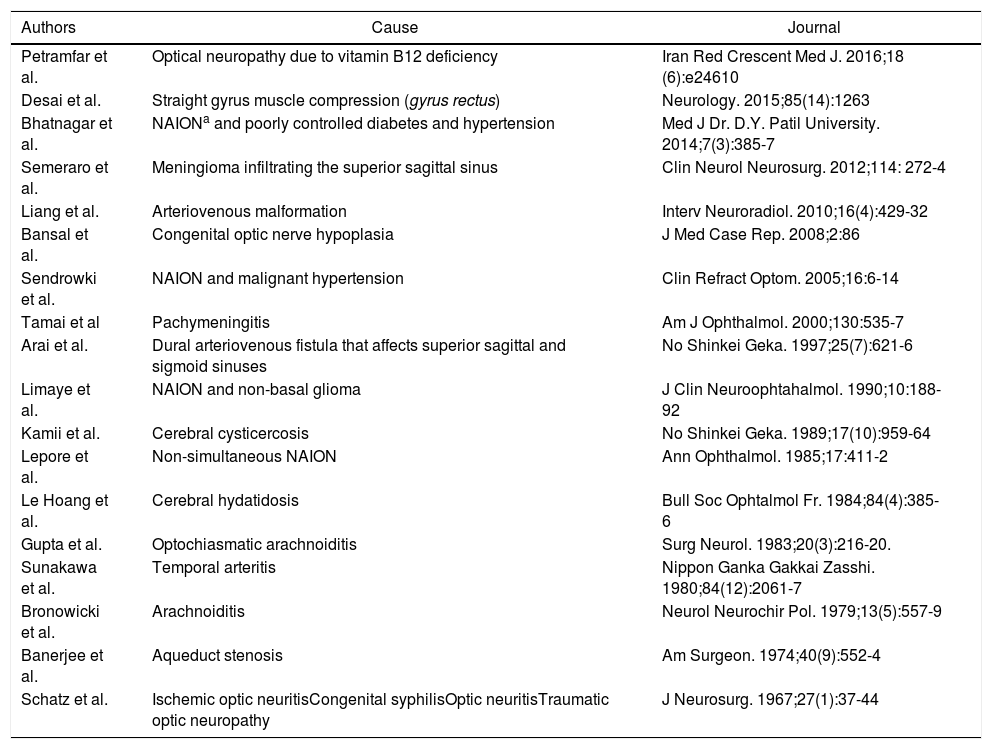Foster–Kennedy syndrome has been diagnosed as a direct compression of the optic nerve due to an expansive process that leads to atrophy. In the contralateral eye there is papillary oedema due to intracranial hypertension secondary to the tumour mass effect.
The case is presented of a 12-year-old boy with overweight (BMI 26) with right eye papillary oedema and left optic nerve atrophy, that was casually found in an ophthalmological examination. He had no other symptomatology or personal medical history. The neurological examination was normal, and the urgent cranial CT showed no masses. Lumbar puncture was performed with increased cerebrospinal fluid outflow resistance (28 cm H2O). The rest of studies were normal.
Until the appearance of neuroimaging, it was believed that Foster–Kennedy syndrome was pathognomonic of intracranial mass in the frontal area. Pseudo-Foster Kennedy syndrome due to idiopathic intracranial hypertension (IIH) is very rare, and in the few that have been reported in the literature, up to 25% of them are asymptomatic.
El síndrome de Foster–Kennedy se ha descrito por una compresión directa, debida a un proceso expansivo, del nervio óptico ipsilateral que conlleva a una atrofia del mismo. En el ojo contralateral existe un papiledema debido a la hipertensión intracraneal secundaria al efecto masa del tumor. Presentamos un caso de un niño de 12 años con sobrepeso (IMC 26) y hallazgo casual en revisión oftalmológica de edema de papila en ojo derecho con atrofia del nervio óptico izquierdo. Ninguna otra sintomatología asociada ni antecedentes de interés. Exploración neurológica normal. TAC craneal urgente sin identificar masas. Se realiza punción lumbar con una presión de apertura de LCR de 28 cm H2O. Resto de estudios normales.
Hasta la aparición de la neuroimagen, se creía que el síndrome de Foster–Kennedy era patognomónico de lesión ocupante de espacio en zona frontal. Existen pocas publicaciones en las que el factor causante del síndrome se atribuya a hipertensión intracraneal benigna (HTIC) y hasta un 25% de ellos se encuentran asintomáticos.









